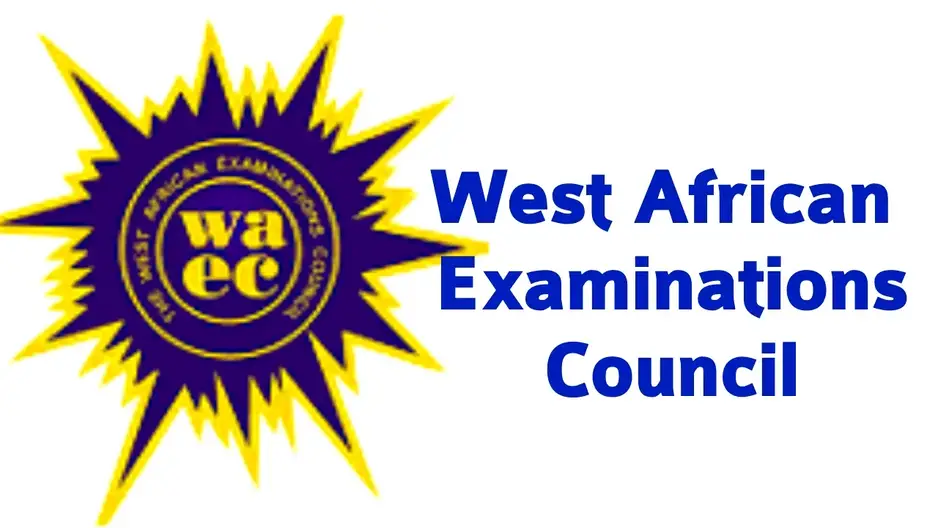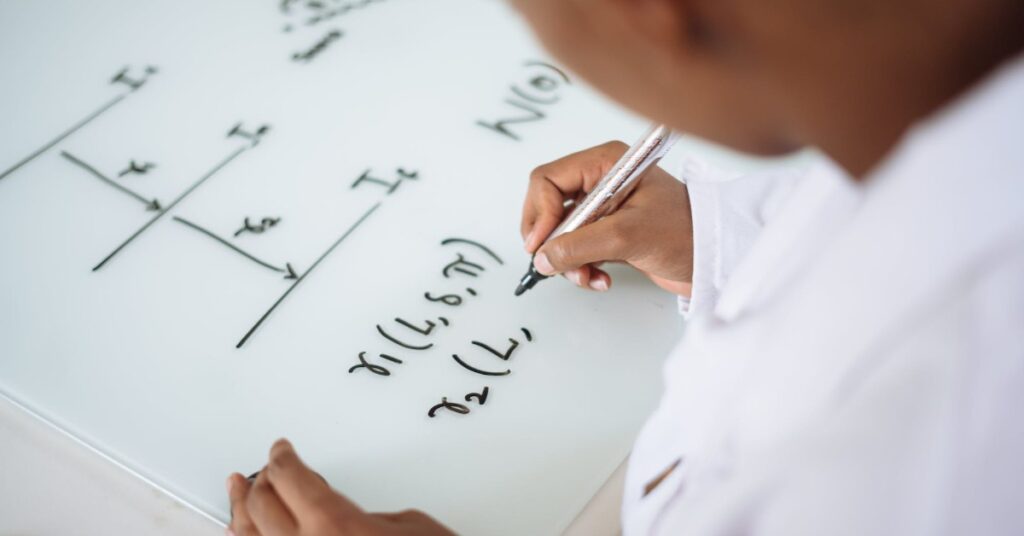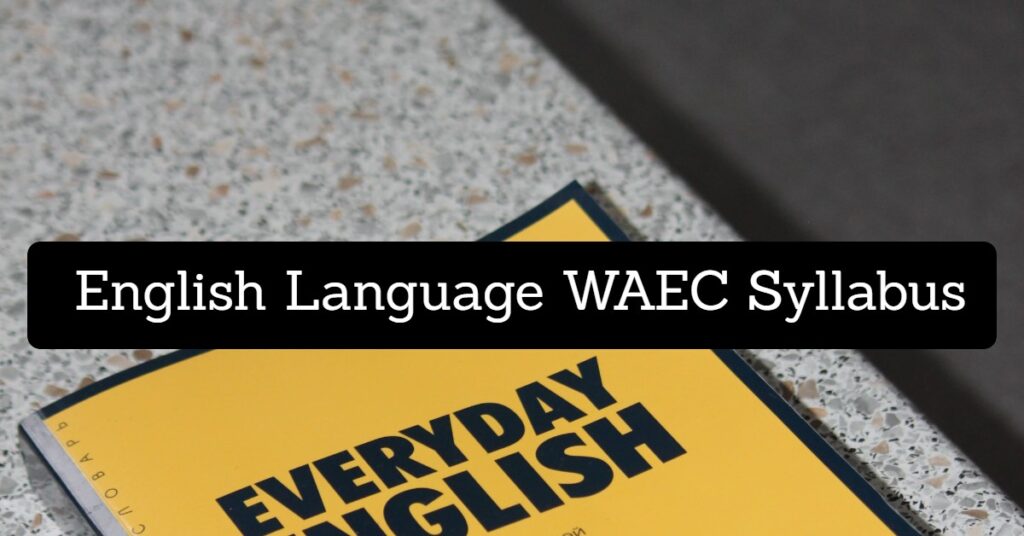
The WAEC syllabus for Further Mathematics is indispensable for candidates preparing to take the examination. It delineates the aims and objectives, along with detailed notes and format for the Further Mathematics exam.
Studying the Further Mathematics syllabus is imperative for effective exam preparation. It provides candidates with a roadmap to understand the topics they need to cover and highlights key concepts they should focus on learning.
Attempting exam preparations without referencing the Further Mathematics syllabus is akin to entering a farm without the necessary agricultural tools, leading to decreased productivity.
It is crucial to kickstart exam preparations by thoroughly engaging with the provided syllabus.
This post also includes recommended textbooks approved by the West African Examination Council (WAEC) to complement your study of Further Mathematics.
WAEC Further Mathematics
Aims of the Syllabus
The aims of the syllabus are to test candidates’
- development of further conceptual and manipulative skills in Mathematics;
- understanding of an intermediate course of study which bridges the gap between Elementary Mathematics and Higher Mathematics;
- acquisition of aspects of Mathematics that can meet the needs of potential Mathematicians, Engineers, Scientists and other professionals.
- ability to analyse data and draw a valid conclusion
- logical, abstract and precise reasoning skills.
Examination Scheme
There will be two papers, Papers 1 and 2, both of which must be taken.
PAPER 1: will consist of forty multiple-choice objective questions, covering the entire syllabus. Candidates will be required to answer all questions in 1hours for 40 marks. The questions will be drawn from the sections of the syllabus as follows:
- Pure Mathematics – 30 questions
- Statistics and probability – 4 questions
- Vectors and Mechanics – 6 questions
PAPER 2: will consist of two sections, Sections A and B, to be answered in 2 hours for 100 marks.
Section A will consist of eight compulsory questions that are elementary in type for 48 marks. The questions shall be distributed as follows:
- Pure Mathematics – 4 questions
- Statistics and Probability – 2 questions
- Vectors and Mechanics – 2 questions
Section B will consist of seven questions of greater length and difficulty put into three parts: Parts I, II and III as follows:
- Part I: Pure Mathematics – 3 questions
- Part II: Statistics and Probability – 2 questions
- Part III: Vectors and Mechanics – 2 questions
Candidates will be required to answer four questions with at least one from each part for 52 marks.
WAEC Further Mathematics Syllabus
In addition to the following topics, more challenging questions may be set on topics in the General Mathematics/Mathematics (Core) syllabus.
In the column for CONTENTS, more detailed information on the topics to be tested is given while the limits imposed on the topics are stated under NOTES.
Topics which are marked with asterisks shall be tested in Section B of Paper 2 only.
KEY:
- * Topics peculiar to Ghana only.
- ** Topics peculiar to Nigeria only
Pure Mathematics
- Sets
- Surds
- Binary Operations
- Logical Reasoning
- Functions
- Polynomial Functions
- Rational Functions
- Indices and Logarithmic Functions
- Permutation and Combinations.
- Binomial Theorem
- Sequences and Series
- Matrices and Linear Transformation
- Trigonometry
- Co-ordinate Geometry
- Differentiation
- Integration
Statistics and Probability
- Statistics
- Probability
Vectors and Mechanics
- Vectors
- Statics
- Dynamics
UNITS
Candidates should be familiar with the following units and their symbols.
( 1 ) Length
1000 millimetres (mm) = 100 centimetres (cm) = 1 metre(m).
1000 metres = 1 kilometre (km)
( 2 ) Area
10,000 square metres (m2) = 1 hectare (ha)
( 3 ) Capacity
1000 cubic centimeters (cm3) = 1 litre (l)
( 4 ) Mass
milligrammes (mg) = 1 gramme (g)
1000 grammes (g) = 1 kilogramme( kg )
ogrammes (kg) = 1 tonne.
( 5) Currencies
The Gambia – 100 bututs (b) = 1 Dalasi (D)
Ghana – 100 Ghana pesewas (Gp) = 1 Ghana Cedi ( GH¢)
Liberia – 100 cents (c) = 1 Liberian Dollar (LD)
Nigeria – 100 kobo (k) = 1 Naira (N)
Sierra Leone – 100 cents (c) = 1 Leone (Le)
UK – 100 pence (p) = 1 pound (£)
USA – 100 cents (c) = 1 dollar ($)
French Speaking territories 100 centimes (c) = 1 Franc (fr)
Any other units used will be defined.
OTHER IMPORTANT INFORMATION
(1) Use of Mathematical and Statistical Tables
Mathematics and Statistical tables, published or approved by WAEC may be used in the examination room. Where the degree of accuracy is not specified in a question, the degree of accuracy expected will be that obtainable from the mathematical tables.
- Use of calculators
The use of non-programmable, silent and cordless calculators is allowed. The calculators must, however not have a paper printout nor be capable of receiving/sending any information. Phones with or without calculators are not allowed.
- Other Materials Required for the examination
Candidates should bring rulers, pairs of compasses, protractors, set squares etc required for papers on the subject. +
They will not be allowed to borrow such instruments and any other material from other candidates in the examination hall.
Graph papers ruled in 2mm squares will be provided for any paper in which it is required.
(4) Disclaimer
In spite of the provisions made in paragraphs 2 (1) and (2) above, it should be noted that some questions may prohibit the use of tables and/or calculators.

